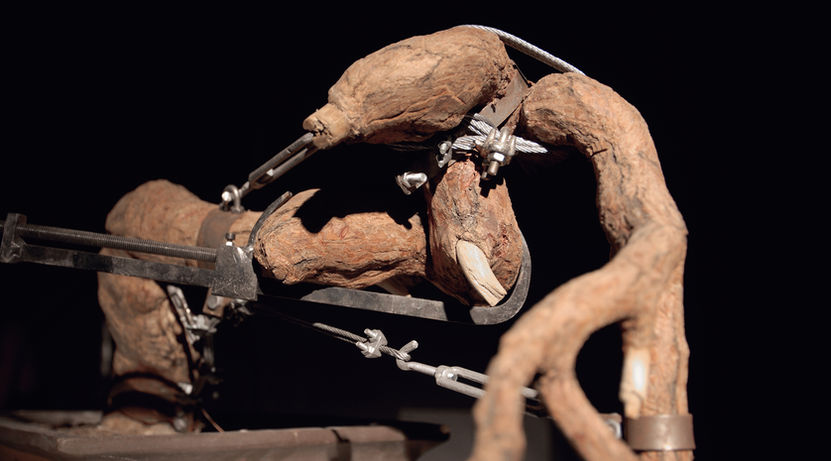
Fouad Agbaria
The Exhibition deals with the aesthetic, cultural, national and political meanings between trees and men as independent creatures discovering their weaknesses, instincts and interdependence upon one another, and between themselves to the natural environment surrounding them.
Even the Trees Bleed
2019
Curator: Raphie Etgar
Even the Trees Bleed
2019
Curator: Raphie Etgar
The Exhibition deals with the aesthetic, cultural, national and political meanings between trees and men as independent creatures discovering their weaknesses, instincts and interdependence upon one another, and between themselves to the natural environment surrounding them.
“The very notion of the domination of nature by man stems from the very real domination of human by human”. This critical declaration ends Murray Bookchin’s book The Ecology of Freedom, sending a not very optimistic message regarding the relationship between nature and mankind.
The exhibition Even the Trees Bleed represents the geo-political reality in which we live. The works, which are based on images of nature and of trees and plants in their environment, offer a contemporary and historic perspective of ourselves. The exhibition seeks to encourage us to reexamine our understanding of the place in which we live. To momentarily connect and disconnect us from the reality we have become accustomed to take for granted and to challenge our conscience through the surrounding landscape and the nature in which we live, reflecting our weaknesses.
In his groundbreaking new book, The Hidden Life of Trees, based on new scientific discoveries, the German forester Peter Wohlleben, reveals to us an astonishing world, previously unknown to us, a world of roots, trunks, branches and leaves whose similarity to our human world is uncanny. Wohlleben argues that trees are social creatures, which communicate with each other, send warning signals regarding imminent dangers and maintain a complex web of intimacy and hostility, of mutual aid and of territorial conflict of interests. The trees’ behavior encourages a wonderful and meaningful discourse offering us a new point of view.
Society’s interest in roots, since time immemorial, proves that they instill in us stability and strength, heritage and might, and yet, it is our responsibility to respect other roots too, to nurture them and learn to live aside them. "Because we are like tree trunks in the snow. They give a false impression of just lying there, easily rolled over with a slight push, but no. It is impossible, for they are strongly attached to the ground. But look, even that is a false impression". (Franz Kafka, Contemplation, 1912).
Naoko Ito, USA/Japan
Giuseppe Licari, Netherlands/Italy
Yael Bartana, Germany/Israel
Larry Abramson, Israel
Shen Shaomin, Australia/China
Garet Lapher, France
Miki Kratsman, Israel
Moshe Gershuni, Israel
Orit Hofshi, Israel
David Tartakover, Israel
Fouad Agbaria, Israel
Shirley Faktor, Israel
Joram Rozov, Israel
Dana Levy, USA/Israel
Guli Silberstein, England/Israel
Natasha Shakhnes, Israel
Amir Yatziv, Israel
Nava Harel-Shoshani, Israel







